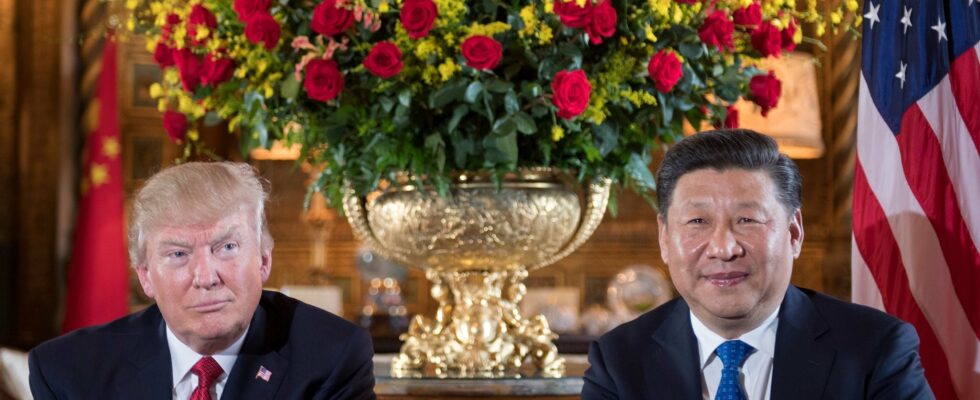Exit from the World Health Organization (WHO), withdrawal from the Paris climate agreements: a few hours after the start of his second term, the new President of the United States, Donald Trump, hastened to sign, Monday January 20, a series of controversial decrees with global repercussions. Aggressive declarations which give space to another actor to pose as a good student on the international scene: China. Beijing in fact said it was “concerned” by these withdrawals, and reaffirmed its commitment to international cooperation.
“The role of the WHO must be strengthened, not weakened,” responded a spokesperson for Chinese diplomacy, Guo Jiakun, at a press conference on Tuesday. “China, as it has always done, will support the WHO in carrying out its missions” to promote “the health of humanity,” he added. Chinese diplomacy also said it was “concerned” by Washington’s new exit from the Paris climate agreement. “Climate change is a common challenge facing all humanity, and no country can remain indifferent or solve the problem alone,” Guo Jiakun said.
On Monday, Donald Trump announced to his supporters that he wanted an “immediate” withdrawal from the climate agreement which he describes as “unfair and unilateral”. He also accused the WHO of having “defrauded” the United States, justifying this withdrawal by the gap in American and Chinese financial contributions.
“Capitalize on American disengagement”
These Chinese statements echo Donald Trump’s first term, during which Beijing remained attached to the Paris agreement and did not renounce its long-term objectives. As in 2017, Beijing is today seeking “to capitalize on American disengagement from international organizations and agreements, in order to present itself as a responsible and predictable actor in international relations”, analyzes Marc Julienne, director of the Asia Center of the French Institute international relations (Ifri).
China will also have to face a possible resumption of trade tensions with Washington, which marked Donald Trump’s first term. The American president then imposed high customs duties on Chinese imports, due to trade practices deemed unfair by Beijing – measures essentially maintained by his successor, Joe Biden.
Last year, Donald Trump promised during his election campaign to increase these customs duties again. Such an initiative would deal a heavy blow to the Chinese economy, whose growth remains largely dependent on exports. Beijing is “ready to strengthen dialogue and communication with the United States, properly handle differences and expand mutual cooperation,” Guo Jiakun said Tuesday in response to a question on the issue.
Cooperation with Europe
Faced with the bulldozing attitude displayed by Donald Trump, the European Commission for its part showed its color: “We will be pragmatic” towards the new American administration, “but we will not renounce our principles” and will ensure “protect our interests and defend our values”, indicated its president Ursula von der Leyen, Tuesday, from Davos, extending a hand in particular to China, which warned against trade wars resulting in “no winner “.
“Europe will continue to advocate cooperation, not only with our long-standing friends, who share our values, but also with all the countries with whom we have common interests,” added the President of the Commission during a speech at the annual meeting of the World Economic Forum in Switzerland. Ding Xuexiang, the Chinese vice-premier who succeeded him at the podium, defended multilateralism, calling for “resolving disputes and differences through dialogue”.
Trade relations between the EU and China are experiencing friction. The number of disputes is growing, but a particularly emblematic measure last year was the imposition by Brussels of surcharges on cars manufactured in China. Ursula von der Leyen nevertheless assured that the EU was ready to “reach out” to China and “deepen” its relationship with Beijing.
